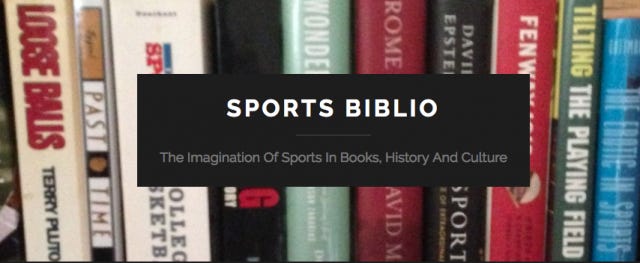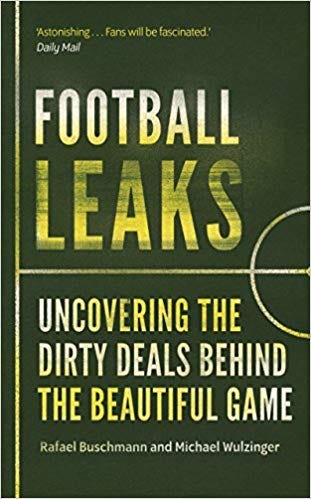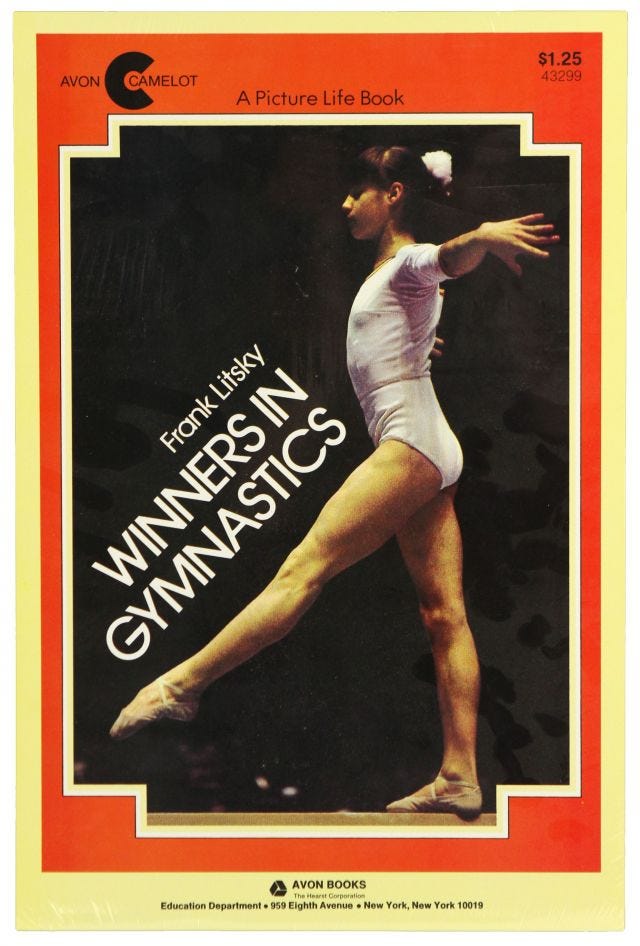Sports Biblio Digest 11.4.18: The Moral Bankruptcy of College Sports

News, Views and Reviews About Sports Books, History and Culture
Also In This Issue: Remembering Willie McCovey and Paul Zimmerman; Der Spiegel and World Football’s ‘Dirty Deals;’ The Red Sox and Curt Schilling; Sports and Politics in Indiana; Bill Freehan; Aaron Hernandez Film; A Prep Sportswriter Extraordinaire; WNBA Labor Pains
* * * * * * * *
A dramatic week at the University of Maryland is the latest bizarre twist in the most recent scandal involving a major-college athletics program.
But the stunning turn of events—the recommended reinstatement of embattled head football coach DJ Durkin by the school’s board of regents, followed by the retirement of president Wallace Loh, followed in turn by his firing of Durkin—was prompted by widespread condemnation from within the university, including the student body, as well as state political leaders, including the governor.
All because a football player died after a breakdown in procedures in medical treatment and amid claims from some of his teammates of a toxic, abusive atmosphere within the program.
The Baltimore Sun rounds up its fine coverage here.
After all of those developments this week, the head of the board of regents resigned under pressure. By then, and before the usual media outrage began pouring in, the appalling saga in College Park demonstrated a reality that has been so readily apparent, especially in the wake of what’s transpired in recent years at other prominent universities, that it shouldn’t have to be repeated here.
Big-time college sports is morally bankrupt, now more than ever. And the festering corruption isn’t necessarily confined to the athletic department. Because of what happened this week, Maryland’s accreditation as a university is under review.
That’s as dire a consequence as any university can face, and not just because of the possible loss of federal funding. It’s a statement about the character of the people running the place, in this instance a major research flagship institution.
At Penn State, Baylor and Michigan State, university presidents came tumbling down with athletic directors and coaches, as they should have, over dreadful acts of sexual abuse that were ignored and even dismissed for years. It shouldn’t be a surprise that a higher education system that is summarily bankrupting students with higher and higher tuition costs has been acting in bankrupted fashion in other ways, even the health and well-being of young people.
The off-season workout death of Maryland offensive lineman Jordan McNair should have been prevented. McNair was hospitalized in May after showing signs of heatstroke from conditioning drills.
It was nearly an hour after he collapsed that an ambulance was even called to the scene, and more than 90 minutes had elapsed before he arrived at the hospital. It was too late to save McNair, who died two weeks later, on June 13, of what was determined to be a heatstroke.
That should have put a quick end to Durkin’s short tenure as coach, as well as that of athletics director Damon Evans, who was serving in an acting role before McNair’s death and was named the permanent AD days later.
When the regents released the results of their investigation, they said Durkin should come back. In their report, the regents took issue with an ESPN report that a culture of fear existed within the football program, including bullying and frequent use of homophobic slurs, that prevented some players from speaking up.
Loh, who’s staying on through the middle of 2019, sent Durkin packing the next day anyway.
When that’s the atmosphere within any sports team, there’s a real problem. Some think today’s students are coddled and babied. I think there’s some truth to that.
But this is about more than being triggered by conservative lecturers or ribald comedians, or, God forbid, a play about Lenny Bruce. This is about more than having feelings hurt.
In the case of Jordan McNair, this was a matter of life and death, and he was failed abysmally. He paid for that negligence with his life. It was the deaths of college football players on the field more than a century ago that prompted Teddy Roosevelt to invite coaches to the White House, which led to the formation of the NCAA.
The NCAA has had little to say about the mess at Maryland. NCAA president Mark Emmert, who overplayed his hand with Penn State sanctions, has been mostly silent since then.
The abuse victims of Jerry Sandusky at Penn State, those raped by Baylor football players, and the gymnasts and female students sexually assaulted by Larry Nassar at Michigan State endured a living hell, and have to live with that the rest of their lives.
So does the family of Jordan McNair, who didn’t live to see his 20th birthday. The moral abdication of adults in charge of overseeing these young people, and who have violated their trust forever, is not a new issue in college sports, or in higher education.
For decades, journalists, former coaches, players and administrators and sports reformers have been writing extensively on the corrupting influences of money and winning in college sports. Maryland hired Durkin, a fiery former assistant most recently at Michigan, in hopes of reversing a lagging program now in the Big 10.
The usual culprits also seep through in the Maryland scandal. But the poor leadership on display at Maryland is as damning as anything in recent college sports annals.
It hurts to write this. I covered college football and basketball for several years, at the highest levels of the game. It’s dizzying to sit in a press box atop a 100,000-seat football stadium or along press row at a Final Four and feel the electricity. You understand what these games mean to fans on a deep cultural level. It's not mere entertainment. The pageantry of college sports has always held more charm for me than pro sports.
But that’s all gone now, and I don’t think it’s coming back. It’s easy for me to feel unburdened since I don’t cover this any more. I wonder if I would feel like I do now if I still were. It’s easy to get caught up in the bubble of frenzied crowds, million-dollar coaches, future NFL and NBA stars and a media-athletic-industrial complex that has gorged itself at the expense of unpaid teenagers.
I’m writing this on what many of my former peers like to say is “a big weekend” in college football. I haven’t watched a play. Perhaps I’ve reached my breaking point.
Most of the people I’ve met in college sports are honorable, decent, ethical people who want the best for kids entrusted to them. But what happened this week has been absolutely revolting to me, the likely accumulation of what’s happened elsewhere in recent years.
I’m not a “burn it all down” type of person. Yet I can’t bear to think what other Durkinesque coaches are out there, making their players miserable, even endangering their safety.
I’m tuning out because for so many years all the right people, those who had the power to do something to prevent these tragedies, did not use that authority properly.
I want to tune back in at some point, but have little faith that those in charge of this corrupt edifice now have any more of a sense of responsibility.
A Few Good Reads
This week Der Spiegel began a series of exposes about graft and world soccer, both at the FIFA and club level, based on the so-called “Football Leaks” documents submitted to a WikiLeaks-style platform.
The more than 18 million files thus far include allegations of financial corruption, tax evasion, murky player transfers, prominent European clubs flirting with forming a “Super League,” doping and more.

Dozens of journalists, including those at the German news magazine, teamed up with the European Investigative Collaborations network and other news outlets to produce their report, which also is being highlighted this weekend on the NDR German television outlet.
Another installment in Der Spiegel details the corrupting influence of oil money in the sport, with allegations that FIFA boss Gianni Infantino worked to prevent harsh punishment for Manchester City and Paris St-Germain for how they built their respective English and French league championship clubs.
There’s plenty of division in Calgary about whether to proceed with submitting a formal bid for the 2026 Winter Olympics. The Alberta city was the host of the wildly successful 1988 Winter Games, but the likely economic benefits, compared to what it costs to stage them now, represent a very different dynamic;
The Boston Red Sox rolled to their fourth World Series championship in 15 years in downing the Los Angeles Dodgers four games to one. Before Game 2 at Fenway Park, the club honored members of the 2004 curse-breaking team, with one glaring exception. Pitcher Curt Schilling, of bloody-sock fame, was not invited, and the outspokenly conservative former ESPN analyst thinks it’s because of his political views;
Victor Oladipo of the Indiana Pacers has been on the stump for Indiana Democratic Sen. Joe Donnelly, who’s facing a close re-election bid on Tuesday. At the same time, former Indiana Hoosiers coach Bob Knight continues his appearances at Donald Trump rallies in the home state of Vice President Mike Pence;
Bryan Curtis of The Ringer, who’s been dialed into sports and politics something fierce since Trump’s election and the Colin Kaepernick saga, also went to Indiana to see whether NBA players are political enough;
In my home state of Georgia, where there’s one of the most-watched governor’s races in the country, UGA legend and Heisman Trophy winner Herschel Walker is endorsing Republican nominee Brian Kemp, who’s getting a Monday campaign push from Trump, Walker’s former USFL boss. Kemp is in a close race with Democrat Stacey Abrams, who would be the first black female governor of any state. She was knocking on doors this week with Oprah Winfrey and even showed up in my usually stalwart Republican Atlanta suburb, which is turning a bit purple;

The Los Angeles Review of Books recently formed a roundtable to discuss NBA issues, inviting scholars and authors who’ve written extensively on the cultural, political and social issues behind the sport, both in North America and around the world. Among them is Yago Colas of Oberlin College, and author of the 2017 book "Ball Don't Lie;"
At The Japan Times, Ed Odeven writes on the impact the late FIBA head Patrick Baumann had on the global basketball scene. Baumann died Oct. 14 at the age of 51 after suffering a heart attack at the Youth Olympics in Argentina;
On Nov. 14 the IFC Center in New York will debut a new documentary, “My Perfect World: The Aaron Hernandez Story,” about the former New England Patriots tight end convicted of murder and who committed suicide in prison. The film is produced by Yahoo! Sports columnist Dan Wetzel and former New York Daily News sportswriter Kevin Armstrong;
WNBA players opted out of their collective bargaining agreement effective at the end of the 2019 season, as the league grapples to find a new president and what NBA commissioner Adam Silver says will be a “reboot” of branding and marketing. Players have complained of salary, media, marketing and travel issues, but Silver said “we're not selling enough tickets to run a viable business;”
One of the few writers examining the economics of the WNBA has been booted as a contributor to Forbes. Dave Berri, a professor at Southern Utah University, has made the case for WNBA players getting a greater share of league revenue, but editors at the business publication said his work was substandard. NBA brass apparently have complained about Berri’s numbers and conclusions, something the league denies;
Former Detroit Tigers catching great Bill Freehan, who’s been suffering from dementia, is in hospice care, and his wife and caregiver Pat has appeared in a video to help raise funds for Hospice of Michigan. He’s wearing his 1968 World Series ring and “is pain free. His needs are met. It has allowed me to care for Bill, in our home, where he wants to be."
Media Lodge Notes

I had the pleasure of meeting and getting to know Frank Litsky, who wrote about just about everything on the sports pages of The New York Times for 50 years. He died this week at the age of 92, and former Times sports editor Neil Amdur penned this warm obituary of Litsky, quoting Bill Parcells and ex-Timesman Malcolm Moran and noting his coverage of other sports, including women’s basketball, the beat where I met Frank. Litsky was the author of several scrapbook-style books, and Amdur said his papers will be donated to a library for sports and culture at University of Texas;
The Columbia Journalism Review profiles Mick McCabe, who’s been utterly devoted to writing about high school sports for the Detroit Free Press for almost 50 years. He retired in 2016, only to un-retire and get back to what he loves doing. I also met Mick on the women’s hoops beat, and admired how much he did to give girls prep basketball in Michigan some serious attention it hadn’t had before;
The blogger and radio show host known as Sports By Brooks had an active presence on Twitter, and then vanished after the Penn State scandal. Scott Melchior resumed tweeting for the first time in five years last month, and in 2016 sports author Jeff Pearlman wrote that he had been in contact, but decided not to publish anything after being commissioned for a story for Bleacher Report: “One shouldn't always find people if they wish not to be found.” Melchior’s refreshed feed includes a number of Tweets about the Maryland football scandal. He says he’s been doing a lot of research into the history of American football. No word if that may be part of a book project or not.

Errata
In last week’s fall sports books preview, I misidentified the publisher of “Baseball Goes West.” The publisher is Kent State University Press, and the book is going to press next week.
Passings
Willie “Stretch” McCovey, 80, played in the shadows of teammate Willie Mays during the 1960s, when the Giants became a fixture in San Francisco. Inducted in the Baseball Hall of Fame in his first year of eligiblity in 1986, he still holds the National League record with 18 Grand Slams, and played all but three of his 22 years with the Giants, who retired his No. 44 jersey. For those who grew up in the Bay Area, McCovey embodied the Giants like no other. McCovey’s Cove, a slice of the bay behind the right field stands at AT & T Park, is named in his honor. A celebration of his life will be held there Thursday.
Ray Ratto writes of McCovey: “His greatness is largely word-of-mouth. . . It was his fate to play in an era with Mays and Henry Aaron and Frank Robinson and Roberto Clemente and Mickey Mantle and Ernie Banks and Harmon Killebrew and Al Kaline and Sandy Koufax and Bob Gibson and Juan Marichal and Carl Yastrzemski and Joe Morgan and Willie Stargell and dozens of others. It was McCovey's place to be included in that group without the one recognizable moment in which he stood triumphant."
Paul Zimmerman, aka Dr. Z., 86, served up a sophisticated prose style in writing about the NFL for Sports Illustrated and as the author of several books on the sport as it emerged to its current status in the 1980s. He had been silenced in recent years due to several strokes, as his former SI colleague Peter King noted two years ago as he was helping Zimmerman complete a memoir.
Now writing for NFL.com, former SI writer Michael Silver described Dr. Z as a “relentlessly authentic legend” who “was gutsy, gritty and bawdy, teeming with over-the-top quirks and propelled by a ruthless work ethic that was counterbalanced by humor and an indefatigable zest for adventure.”
More tributes here.
* * * * * * * *
The Sports Biblio Digest is an e-mail newsletter delivered each Sunday. You can subscribe here and search the archives.
This is Digest issue No. 142, published Nov. 4, 2018.
I’d love to hear what you think about the Digest, and Sports Biblio. Send feedback, suggestions, book recommendations, review copies, newsletter items and interview requests to Wendy Parker at sportsbiblio@gmail.com.
You can also follow Sports Biblio on Twitter and hit the “like” button on Facebook.


